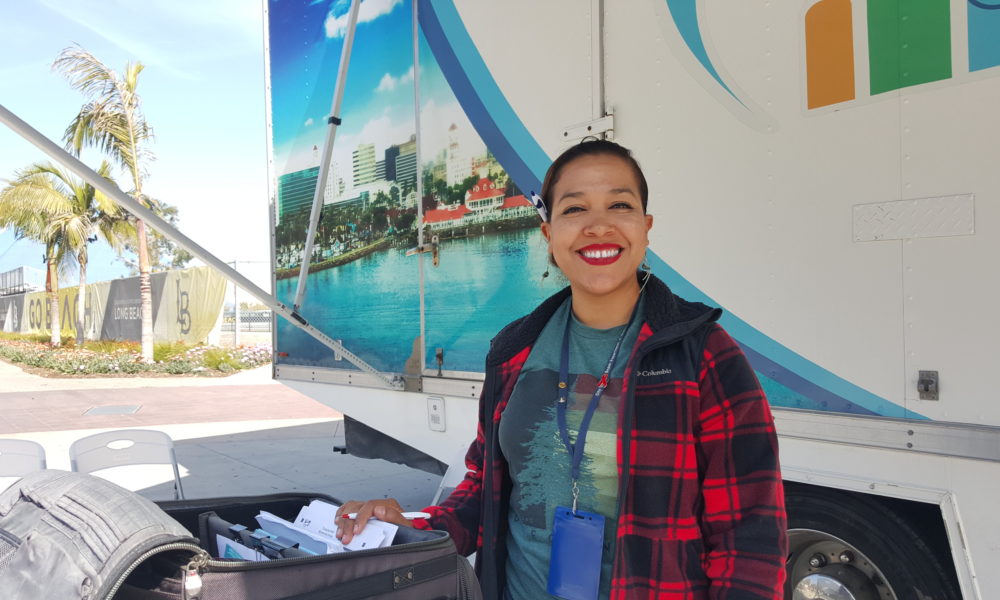The Long Beach Health Department brought its mobile clinic to campus for free HIV testing Thursday in an effort to educate students and provide information about other resources the department offers.
The department has done HIV testing on campus for 15 years, according to Susan Alvarado prevention coordinator. It provides on-campus testing twice a semester.
Alvarado said that the program allows for an easier and more convenient pathway for students to get tested, rather than going to a clinic elsewhere.
“We bring the HIV testing services to the campus where maybe it’s a little bit more accessible for students to get tested for HIV,” she said. “It reduces the stigma, the fear for students to be able to test for HIV.”
Although students get tested on campus, the department offers other resources, such as STD services, family planning and information on Medi-Cal. The mobile clinic acts “to provide a bridge for the services” that the department can offer students, Alvarado said.
“It’s a head start,” said Calvin Moore, a health educator for the department. “The only thing [doctors] do, is what you ask them to do.”
According to the 2018 Long Beach HIV/STD surveillance report, the city has higher rates of new HIV infections than Los Angeles County and the State of California.
“Unfortunately the epidemic of HIV is most prevalent in African-American communities,” Alvarado said.
The report shows that the African American population, despite having the fewest number of newly infected individuals, still had the highest overall rate in comparison to white and Latino populations. African-American women make up 14% of Long Beach, but make up 34 % of females who have HIV in the city.
One of the focuses of the department is to provide education about of HIV, information on preventative medication and debunking myths of who needs it.
“In the few times that I’ve come out with my team here, one of the big enlightening moments for students is PrEP, which is a prevention of HIV by taking a daily pill, many students don’t even know that’s available,” Alvarado said. “You see the heterosexual women coming through, heterosexual men [saying] ‘I don’t know, I thought that was just for gay men.’”
Alvarado said that the department has been pushing the new message of “undetectable equals untransmittable,” which aims to show that if a person living with HIV takes their medication regularly, the virus will show up as undetectable, therefore, it can not be transmitted.
First-year criminal justice major Chasity Miller said that the clinic was helpful, especially for college students.
“I feel like that’s when we engage in risky behavior and we can’t talk to our parents or anyone else about it, so school is like the safest option,” Miller said. “I think it reduces the stigma, makes it seem more normalized.”




